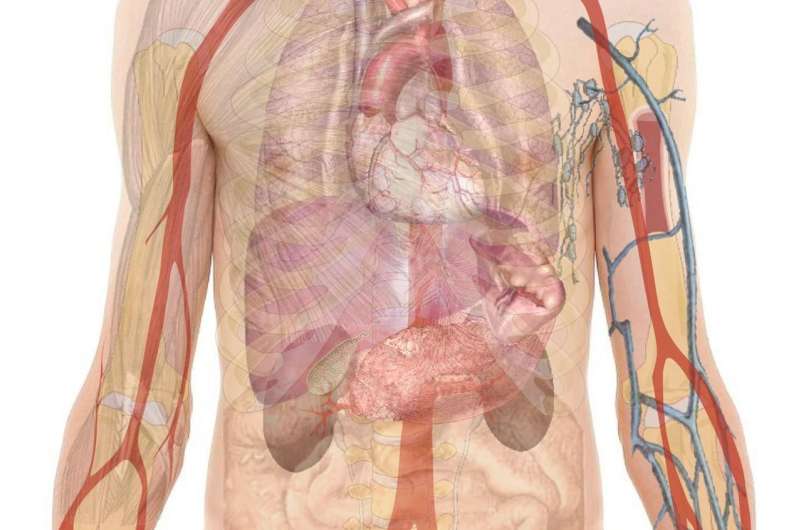Electricity plays a surprising role in keeping the body's protective cell layers healthy

Sadie Harley
scientific editor

Robert Egan
associate editor

Cells bumping against one another use electricity to identify which of their neighbors has the least energy to expel them. The King's College London study in partnership with the Francis Crick Institute provides insight into diseases including cancer and stroke, where cellular energy levels can be disrupted, preventing the maintenance of healthy cell numbers.
Epithelial cells, which line all organs in the body, turnover rapidly to maintain a tightly packed protective layer. They undergo a process called extrusion to eliminate excess or damaged cells, essential for balancing cell division and cell death.
Extrusion is a fundamental process, common in living organisms from sea sponge to humans, that drives most epithelial cell death. When it goes wrong and the balance of healthy cells is disrupted, it can lead to disease.
Earlier work by the group led by Professor Jody Rosenblatt at King's College London discovered that extrusion is mechanical—when too many epithelial cells accumulate, crowding triggers some to be physically squeezed out, causing them to die.
The scientists were unsure if the crowded cells selected to extrude were randomly selected, or some were specifically targeted. This latest discovery, published in Nature, reveals that crowding selectively targets the weakest, energy-poor cells for death.
Epithelial cells spend a remarkable amount of energy establishing and maintaining an electrically charged surface or membrane. While this electrical potential is well known in nerve cells, its role in other cell types has been largely overlooked.
Using live imaging from microscopes, the scientists noticed a lightning-like flash around epithelial cells before they extrude, which they later found out stemmed from an electrical current. They found that epithelia exploit this potential to identify and expel neighbors running low on energy. These "energy-deficient" cells get selected for extrusion, causing them to die.
The team used inhibitors, which block ion channels in cells to alter how they function, to discover that specialized channels are triggered in crowded cells that cause sodium ions to rush into the cell.
This changes the cell's electrical signal compared to its neighbors. Cells with enough energy will simply pump out the sodium to maintain the electrical potential. However, cells with low energy cannot, and will use a "last gasp" of energy to activate a current which causes water to leave the cells, causing them to shrink and then extrude.
Lead author Dr. Saranne Mitchell, based at the Faculty of Life Sciences & Medicine at King's College London, said, "We see this sodium channel acting as a sensor, exposing cells with the least amount of energy and targeting those cells for death.
"This mechanism gives epithelia a constant surveillance system to rapidly detect weak cells and remove them. It's like an electrical quality-control check, keeping tissues robust and functional."
by the King's group highlighted how extrusion might be crucial to the development of a new treatment to repair the airway epithelial barrier in asthma, so the team are now eager to explore more about the relationship between extrusion and disease.
Co-author Professor Rosenblatt, who is leading a seconded lab at the Crick, added, "By revealing that cells with low energy are targeted for extrusion, our work also adds a new layer into how metabolism can impact many diseases.
"This new insight could suggest how overconsumption, through eating more and consuming more calories, might override this 'low energy trigger' for extrusion and prevent the elimination of defective cells, allowing them to accumulate into cancers. It might also reveal how energy deprivation following a stroke, caused by impacted blood supply, could lead to excess extrusion and organ damage."
More information: Energy deficiency selects crowded live epithelial cells for extrusion, Nature (2025). ,
Journal information: Nature
Provided by King's College London


















